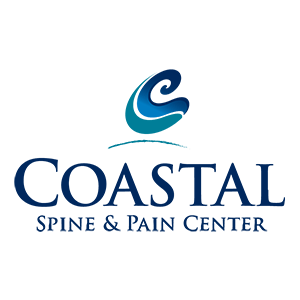
Introduction: Understanding Our Relationship with Stress
As National Stress Awareness Day casts a spotlight on the universal yet personal experiences of stress, it invites us into a profound understanding and dialogue with our internal ecosystems. Stress, inherently known as the body’s method of responding to any demand or threat, illustrates a survival mechanism dating back to the origins of human history. Initially, stress functioned as a life-saving process, releasing a burst of energy and hormones to respond to the physical demands of an immediate threat. This mechanism, popularly known as the ‘fight or flight’ response, was crucial when our ancestors faced predatory animals and other environmental dangers.
However, the landscape of human stress has evolved with our complex societies. Instead of intermittent, life-threatening emergencies, we now face a deluge of sustained, psychologically oriented stressors including workplace pressures, financial uncertainties, health concerns, and societal expectations. These modern stressors, unfortunately, trigger the same primal ‘fight or flight’ mechanism, designed for short bursts, not for long-term situations. This constant activation takes a toll on our physical and emotional well-being, turning from a survival tool into a health hazard.
The High Cost of Constant Stress: Facts and Figures
The impact of this relentless stress is more than just a feeling of being overwhelmed; it manifests physically in our bodies, chipping away at our health bit by bit. A survey from the American Psychological Association painted a stark picture, with 77% of people reporting physical symptoms caused by stress. These symptoms range from fatigue and muscle tension to serious issues like heart disease, stroke, and high blood pressure.
Moreover, chronic stress is a silent manipulator of our internal functions. It’s implicated in the six leading causes of death: heart disease, cancer, lung ailments, accidents, cirrhosis of the liver, and suicide, according to the American Institute of Stress. And the financial costs are staggering as well, with hundreds of billions spent annually in the U.S. on stress-related health care and missed work.
A Deeper Impact: Stress and Autoimmune Disorders
When it comes to autoimmune disorders, the conversation around stress deepens. These conditions, where the body essentially attacks itself, range from rheumatoid arthritis and multiple sclerosis to certain kinds of thyroid disorders. Research, including studies published in the likes of “Psychosomatic Medicine,” has found that stress management can influence the course of autoimmune diseases. Chronic stress, known for disrupting immune regulation, appears to create a pro-inflammatory state. The body, remaining in a constant alert phase, produces what’s called ‘systemic inflammation,’ making existing autoimmune conditions worse.
In a breakthrough 2018 study, researchers found that stress management reduced disease activity in people with multiple sclerosis. These insights only scratch the surface of the complex relationship between stress and physical health, highlighting an urgent need for stress management strategies in maintaining our bodily systems’ equilibrium.
Embarking on the Stress Management Journey: Daily Practices
Managing our response to stress, therefore, isn’t a luxury—it’s a necessity. Establishing routines that can help buffer this stress response is essential. Practices might include:
- Mindfulness and Meditation: Techniques such as focused breathing, guided imagery, and mindfulness meditation can slow down the whirlwind of daily life, offering a practical tool to remain anchored despite chaos. A consistent meditation practice, even for just a few minutes a day, can significantly lower stress levels, reduce anxiety, and improve cardiovascular health.
- Physical Activity: Regular physical activity increases the production of endorphins, known as the brain’s feel-good neurotransmitters. It’s also considered meditation in motion, as you often forget the day’s irritations and concentrate solely on your body’s movements. As you begin to regularly shed your daily tensions through movement and physical activity, you may find that this focus on a single task can help you remain calm and clear in everything you do.
- Balanced Diet: Consuming a healthy diet can help counteract the impact of stress by shoring up the immune system and lowering blood pressure. Comfort foods, like a high-carbohydrate diet, can have a soothing effect, but they cause a rapid rise and fall in blood sugar levels, potentially enhancing stress. Instead, a diet rich in fruits, vegetables, lean protein, and whole grains can be a buffer against stress.
- Quality Sleep: Stress often disrupts sleep, and a lack of sleep can make stress worse, creating a cycle. Enhancing sleep hygiene practices — such as creating a consistent sleep schedule, winding down a few hours before bedtime, making the bedroom a sleep-inducing environment — can improve sleep quality, helping to manage stress.
Be Still Float Studio Membership: Your Investment in Health
Taking your commitment to stress management a step further involves dedicating yourself to ongoing, holistic self-care practices. This is where Be Still Float Studio becomes your sanctuary. Investing in a membership with us is akin to investing in your well-being, providing you access to consistent care, innovative stress-relief modalities, and a community committed to supporting your journey toward a balanced life.
With a membership at Be Still Float Studio, you are not just scheduling an appointment for relaxation; you are establishing a routine of peace, recovery, and personal insight. Our services, which include float therapy, sound healing, and roXiva light therapy, are curated to offer a comprehensive approach to stress management:
– Float Therapy: Within the quiet sanctuary of a float pod, the world slips away, leaving behind the pressures, the tension, and the cacophony that mark our daily lives. Immersed in warm, Epsom-salt-infused water, your body finds relief from the pull of gravity. Muscles relax, and the mind finds a calm rarely experienced in the hustle of everyday life. Research from the Laureate Institute for Brain Research notes that regular float therapy sessions have a significant impact on reducing both stress and anxiety levels.
– Sound Healing: This therapy uses aspects of music to improve physical and emotional health and well-being. The person being treated partakes in the experience with a trained practitioner. Sound healing may involve listening to music, singing along to music, moving to the beat of the music, meditating, or playing an instrument. It enables individuals to shift from a state of imbalance to a state of balance, using rhythmic patterns and tonal properties that alter brain wave frequencies, promoting relaxation and stress relief.
– roXiva Light Therapy: Light therapy works on a cellular level, especially roXiva, a specialized form that harnesses the healing powers of red and near-infrared light. These lights stimulate adenosine triphosphate (ATP) production, an energy-carrying molecule found in the cells of all living things. With more energy, cells can function more efficiently, rejuvenate themselves, and repair damage, effectively aiding in relaxation, mood regulation, and sleep support.
The Journey is Sweeter Shared: The Power of an Accountability Partner
One integral aspect of any transformative journey is companionship. Having someone to share your wellness journey with not only makes the experience more enjoyable but also holds you accountable. It’s easier to maintain motivation and routine when you know someone is sharing your goals and will be there to support you, encourage you, and even offer some friendly competition.
An accountability partner provides a sense of solidarity. It’s inspiring to see someone else overcome hurdles and reach new milestones because it reinforces the belief that you can do it too. Whether it’s a friend, a family member, or a colleague, having someone else at Be Still Float Studio with you can make all the difference in your wellness journey.
Starting Your Wellness Journey: Take the Next Step
On this National Stress Awareness Day, we invite you to take a decisive step forward in your health and wellness journey. Start by taking our comprehensive wellness assessment designed to understand your unique needs and stressors and tailor a stress management plan suited just for you. Or, if you prefer a more direct approach, come by for a tour. Experience our tranquil environment, ask questions, and see firsthand what services might resonate with you and your wellness goals.
Conclusion: Making a Commitment to Lifelong Wellness
National Stress Awareness Day isn’t just about acknowledging the stress we face; it’s about taking action. In understanding the detrimental effects of unmanaged stress on our bodies and recognizing the profound benefits of stress management, we see that this isn’t merely an act of self-improvement but of self-preservation.
Committing to a routine with Be Still Float Studio means prioritizing yourself in a world that constantly demands more. It’s about acknowledging that to give your best — to your job, your family, your community — you must be your best, both mentally and physically.
By investing in your well-being now, you are setting the stage for a healthier, more vibrant future, marked not by the absence of stress but by your resilience in its presence. This commitment is not a solitary one; we at Be Still Float Studio are with you at every step, providing the tools, the environment, and the community to support you on this journey toward lifelong wellness.
So, let’s take a step back from the precipice of chronic stress. Instead, let’s embrace the tranquility, the healing, and the profound sense of well-being that comes from taking our health into our own hands. Join us, and float above the chaos, into a serene space of healing and peace.












